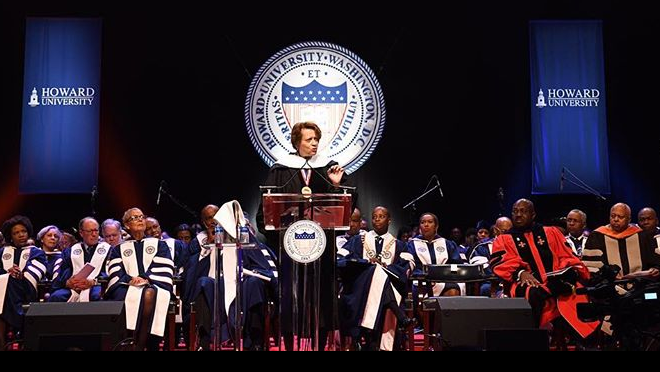Former rap group member releases uplifting album with a jazz, funk blend
On his second official solo album “The Renaissance”, A Tribe Called Quest alumni Q-Tip is back from hip-hop’s golden age to bring his own complex, jazz-filled expressions to mainstream rap.
With more and more of today’s rap artists focusing more on catchy dance hooks than their lyrical fitness, Q-Tip’s new album is a refreshing dose of conscious melodies and urban philosophies. Simply put, “The Renaissance” couldn’t have come out at a better time.
With the album released around same time as the historic election of President-elect Barack Obama, it is clear that change is both necessary and needed.
Q-Tip was the lead emcee for A Tribe Called Quest, the legendary jazz-rap crew of the 90’s. He built a reputation for influencing the rap genre heavily with his nasally-voiced delivery of punch lines and rhymes. It is clear that time hasn’t aged Q-Tip’s lyrical abilities. On the contrary, he seems refreshed and ready to put his best foot forward.
He doesn’t disappoint, either. Right from the jump, Q-Tip comes out strong with his first track “Johnny is Dead” where he redefines his place in hip hop over guitar riffs and funk rhythms.
His lead single “Gettin’ Up” is one of the strongest songs on the album, with an easygoing flowed that is matched by a laid back, jazzy beat. The rest of the album follows suit with innovative songs that are easy on the ears and deliver a variety of messages. From the current state of rap music to past relationships, Q-Tip seems determined to leave his listeners acknowledging his lyrical prowess.
“The Renaissance” itself flows effortlessly with each track being strategically placed to create a smooth, enjoyable journey through Q-tip’s mind. Produced almost entirely by the rapper himself, Q-tip chose not to enlist the aid of any additional rappers, but only a select few singers, including D’Angelo, Amanda Diva, and Raphael Saadiq. He uses elements of neo-soul and jazz samples to craft songs that are both introspective and universal.
There is something for everyone with tracks like “Shaka” that should satisfy fans of the old-school hip hop movement while bridging the gap with energy that connects with a younger generation. The funky song “Move” by the late hip hop producer J Dilla has Q-Tip venting about his frustrations with the music industry. “Dance on Glass” highlights the rapper’s views on the current state of hip hop from a veteran’s perspective while “You” reflects on an ex- girlfriend with nostalgia and depth that only Q-Tip can accomplish.
On “Life is Better,” the emcee creates an unforgettable melody with the help of inspiring vocals from songstress Norah Jones. Giving shout outs to both former and current hip-hop artists from Rakim to Ludacris, Q-Tip acknowledges the evolution of rap music without forgetting to pay homage to those emcees that came before him and paved the way.
One of the reasons that the album is so enjoyable is because the songs are timeless; they can still be relevant 10 years from now. Q-Tip maintains the soothing, 70’s soul sampling to make this album stand out from the current wave of hook-heavy records that define much of current mainstream rap music.

